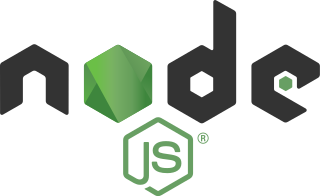
Twisted is an event-driven network programming framework written in Python and licensed under the MIT License.
Web-based SSH is the provision of Secure Shell (SSH) access through a web browser. SSH is a secure network protocol that is commonly used to remotely control servers, network devices, and other devices. With web-based SSH, users can access and manage these devices using a standard web browser, without the need to install any additional software.
A single-page application (SPA) is a web application or website that interacts with the user by dynamically rewriting the current web page with new data from the web server, instead of the default method of loading entire new pages. The goal is faster transitions that make the website feel more like a native app.

Node.js is a cross-platform, open-source JavaScript runtime environment that can run on Windows, Linux, Unix, macOS, and more. Node.js runs on the V8 JavaScript engine, and executes JavaScript code outside a web browser.
CommonJS is a project to standardize the module ecosystem for JavaScript outside of web browsers.
JSGI, or JavaScript Gateway Interface, is an interface between web servers and JavaScript-based web applications and frameworks. It was inspired by the Rack for Ruby and WSGI for Python and was one of the inspirations of PSGI for Perl.

Opa is a programming language for developing scalable web applications. It is free and open-source software released under a GNU Affero General Public License (AGPLv3), and an MIT License.
Mustache is a web template system. It is described as a logic-less system because it lacks any explicit control flow statements, like if and else conditionals or for loops; however, both looping and conditional evaluation can be achieved using section tags processing lists and anonymous functions (lambdas). It is named "Mustache" because of heavy use of braces, { }, that resemble a sideways moustache. Mustache is used mainly for mobile and web applications.
AngularJS is a discontinued free and open-source JavaScript-based web framework for developing single-page applications. It was maintained mainly by Google and a community of individuals and corporations. It aimed to simplify both the development and the testing of such applications by providing a framework for client-side model–view–controller (MVC) and model–view–viewmodel (MVVM) architectures, along with components commonly used in web applications and progressive web applications.
Yeoman is an open source client-side scaffolding tool for web applications. Yeoman runs as a command-line interface written for Node.js and combines several functions into one place, such as generating a starter template, managing dependencies, running unit tests, providing a local development server, and optimizing production code for deployment.

Eclipse Vert.x is a polyglot event-driven application framework that runs on the Java Virtual Machine.
SignalR is a free and open-source software library for Microsoft ASP.NET that allows server code to send asynchronous notifications to client-side web applications. The library includes server-side and client-side JavaScript components.

Ember.js is an open-source JavaScript web framework that utilizes a component-service pattern. It is designed to allow developers to create scalable single-page web applications by incorporating common idioms, best practices, and patterns from other single-page-app ecosystem patterns into the framework.
Meteor, or MeteorJS, is a partly proprietary, mostly free and open-source isomorphic JavaScript web framework written using Node.js. Meteor allows for rapid prototyping and produces cross-platform code. The server-side MongoDB program is the only proprietary component of Meteor and is part of the Meteor download bundle. It is possible to use Meteor without using the server-side MongoDB. It uses the Distributed Data Protocol and a publish–subscribe pattern to automatically propagate data changes to clients without requiring the developer to write any synchronization code.
Express.js, or simply Express, is a back end web application framework for building RESTful APIs with Node.js, released as free and open-source software under the MIT License. It is designed for building web applications and APIs. It has been called the de facto standard server framework for Node.js.
WAMP is a WebSocket subprotocol registered at IANA, specified to offer routed RPC and PubSub. Its design goal is to provide an open standard for soft, real-time message exchange between application components and ease the creation of loosely coupled architectures based on microservices. Because of this, it is a suitable enterprise service bus (ESB), fit for developing responsive web applications or coordinating multiple connected IoT devices.

Deno is a runtime for JavaScript, TypeScript, and WebAssembly that is based on the V8 JavaScript engine and the Rust programming language. Deno was co-created by Ryan Dahl, who also created Node.js.

Tokio is a software library for the Rust programming language. It provides a runtime and functions that enable the use of asynchronous I/O, allowing for concurrency in regards to task completion.
htmx is an open-source front-end JavaScript library that extends HTML with custom attributes that enable the use of AJAX directly in HTML and with a hypermedia-driven approach. These attributes allow for the dynamic definition of a web page directly in HTML and CSS, without the need for writing additional JavaScript. These attributes allows tasks that traditionally required writing JavaScript to be done completely with HTML. The library was created by Carson Gross as a new version of intercooler.js.







